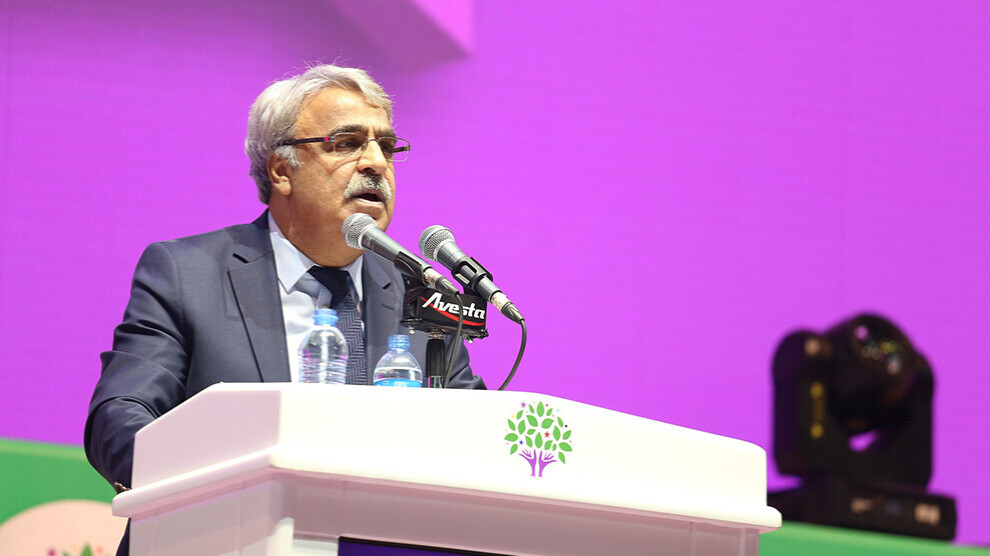HDP chair Mithat Sancar has called on the opposition parties not to grant Turkish President Recep Tayyip Erdoğan another war mandate. In order to free the country and population from the "bloody cycle of violence", to avert crisis and to enable an equal and free life for all, there must be resistance to the "politics of war and exploitation," said Sancar on Saturday at a meeting with representatives of civil society in Antalya.
Turkey wants to extend its mandate for foreign missions in Iraq and Syria by two years. Next Tuesday, the members of the Turkish National Assembly in Ankara want to vote for a corresponding proposal from the presidential office. Should Erdoğan get the green light, he would be entitled to decide by 2023 on “the limit, extent, quantity and timing” of sending Turkish troops to the two neighbouring countries “to carry out military operations and interventions if necessary”. In addition to the expansion of military aggression in Syria and Iraq, the situation in Turkey, which is already marked by political instability, a deep economic and social crisis and war, threatens to worsen.
Representatives of civil society and civil law organizations, political parties and religious associations took part in the meeting in Antalya.
“Once again, the government is reacting to the worsening internal crisis by tightening war policy. This is how it tries to secure its existence,” said Sancar. This state of armed aggression and “multiple crises” has been going on since 2015. The opposition parties are therefore obliged to counter the government's ideological and political preference, which lies in neoliberal politics, war and capital, on the basis of peace concepts and anti-war struggles. “Only in this way are we able to create hope for a better country and a future worth living in,” said Sancar.
Mandate granted for the first time in 2014
Turkey has the second largest army in NATO. Parliament first issued the foreign mandate for Syria and Iraq in October 2014 and has renewed it annually since. Officially, it allows military operations in neighbouring countries against the jihadist group Islamic State and other groups that the Turkish government classifies as "terrorists" - to "protect its own borders". However, these operations are directed against the guerrilla organizations of the PKK and the Syrian Democratic Forces (SDF).
Operational area in Syria expanded
The mandates passed so far said that in the case of Syria it was only about "legitimate national security interests against the YPG / PYD-PKK in the border areas in the east of the Euphrates" - that is, about the zone of occupation known as the "security zone." The text put to the vote on Tuesday expressly refers to all areas in Syria.














